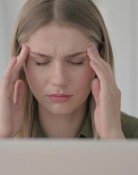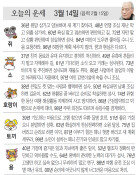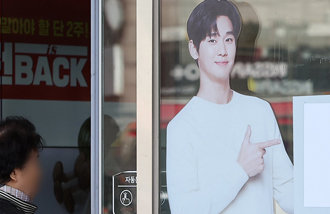Japans medical school showcases experiment on living bodies to reflect upon past atrocities
Japans medical school showcases experiment on living bodies to reflect upon past atrocities
Posted April. 06, 2015 07:14,
Exhibits meant to reflect upon atrocities committed by older medical school alumni, who conducted medical experiment on living bodies of U.S. military prisoners, have been installed at the Kyushu University college of medicine in Japan.
According to Kyoto News Agency on Saturday, the Kyushu University medical college in Fukuoka City launched on the day the "Medicine history museum," which was established with donations from its alumni association. A total of 63 exhibits showcasing the over 110-year history of the Kyushu University medical college, and two of them are related to the medical experiment on living human bodies.
The exhibits, which provided detailed account of the case of Kyushu University medical experiment on living bodies committed around the end of the Pacific War, has a label reading, "We express deep condolences from the bottom of our heart to foreign soldiers who died due to inhumane medical experiment on living bodies." Hideki Sumimoto, dean of the Kyushu University medical college, said at the inaugural ceremony for the museum, We hope to use the museum as a venue to shed light on roles and achievements made by the medical college, and reflect upon things of the past, before contemplating our future direction.
The case of medical experiment on living bodies committed at Kyushu University refers to an incident in which the universitys medical college professors dissected the bodies of eight of the crewmembers from a U.S. military bomber that had been shut down at its anatomy room in 1945, when Japan was about to lose the war. The incident was also used as background of the novel "The Sea and Poison" by Japanese novelist Shusaku Endo (1923-1996). After the end of the war, a total of 23 people involved in the case were found guilty, with five medical doctors directly engaged in the incident receiving death sentence, at a court martial in Yokohama. However, they were not executed and most of those involved were set free as the U.S. appeasement policy for Japan was put in place following the outbreak of the Korean War.
Kyushu University tabooed even mentioning of the incident until recently. However, a meeting of the medical colleges faculty adopted a decision suggesting that it should publicize dark history as well following the establishment of the medical history museum, and chose to display the exhibits on the experiment.
lovesong@donga.com
Headline News
- Opposition parties pass amendment to Commercial Act
- Impeachment motions against top officials dismissed
- IU's residence ranked as the nation's most expensive apartment
- K-medicine saves 300 lives in Mongolia through liver transplant skill transfer
- Prisoners in N. Korean camps suffer from torture at minus 30 degrees







